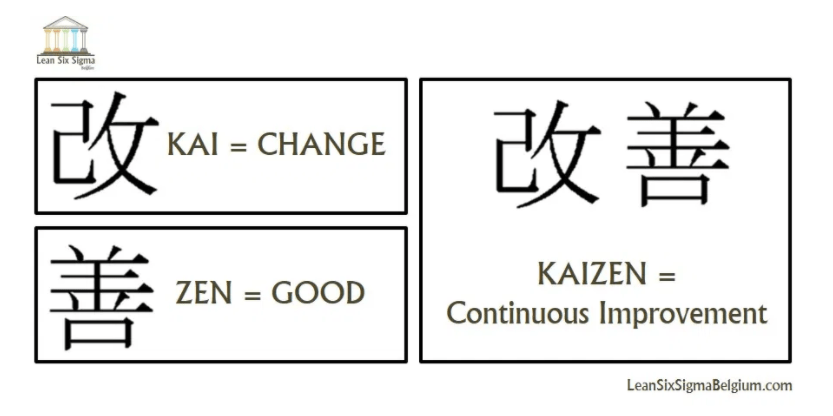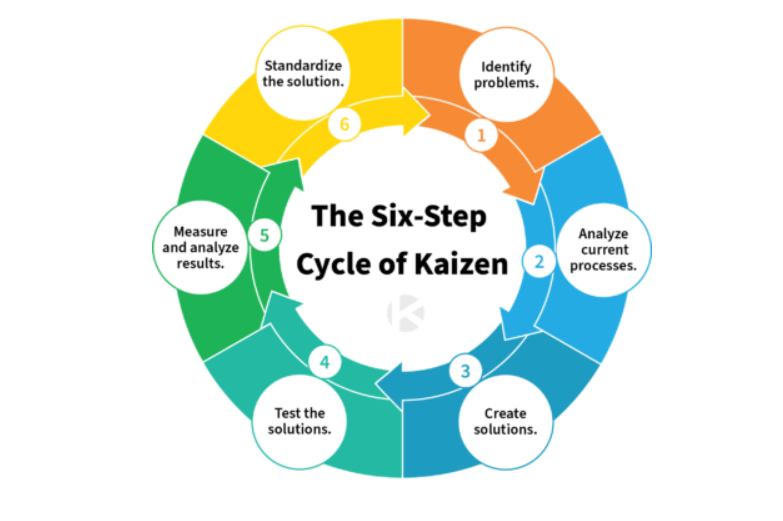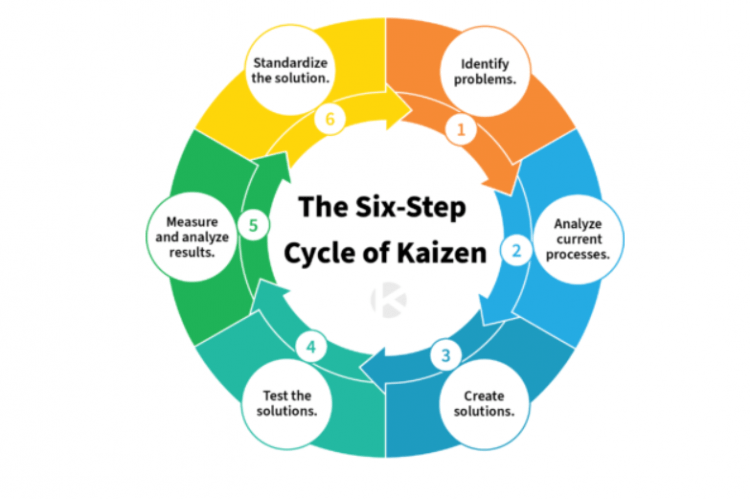Publish
Did you know that an Agile Scrum Master certification could be an asset to your resume?
Besides the obvious benefit of acquiring knowledge on Scrum’s principles and skills, it can help you stay ahead in your career. Enterprises adopt the Scrum Agile framework to enhance collaboration, communication, and speed in large and complicated projects.
Hence, most people learn Scrum for better risk management while successfully completing tasks on time. In this light, it is imperative to talk about Kaizen, one of the most powerful methods for problem-solving in Agile.
An effective leader understands that leadership is a life-long process that requires effort every day, not just occasional speeches or decisions. The ING leads agile changes to stay competitive and relevant, but often do not have the time, resources or skills to do so.
What is Kaizen?
Be it Agile, Scrum, Kaizen, or Lean, many useful principles have become the fundamental theory behind businesses, especially software development. So, whether you get the Agile Scrum Master certification or sign up for the Kaizen certification, you are in for a bright career. But first, let us talk in detail about Kaizen.
Kaizen is a Japanese term that means “continuous improvement” or “change for the better.” It is a business philosophy that emphasizes processes aimed at continuously improving operations while ensuring the involvement of all the employees. According to the Kaizen philosophy, productivity improvement is a gradual and systematic process.

But how did the concept of kaizen come about? Here’s a brief history of the development of Kaizen.
We all know about the globally renowned Japanese car manufacturing company Toyota. But how many of us know the secret behind its massive success? It was the 1980s when Toyota came up with the idea of evolving a business process for identifying production issues as soon as they happened. Any defect would lead to the shutting down of the whole production line until the staff could put forward a solution, which would then be implemented to eliminate the possibility of recurrence. As a result, these small improvements to Toyota’s production system over the years led to its emergence as one of the most reliable and efficient names in the industry. With time, more and more companies followed Toyota’s exemplary Kaizen philosophy to achieve success.
Kaizen Principles
The idea behind the Kaizen methodology is to aim for consistent improvements through the elimination of waste. Even though it has been around in Japan since post the Second World War, it is mostly associated with ‘The Toyota Way,’ a set of principles that guide the company’s management approach towards production.
Following are the five Kaizen principles that are fundamental to any Kaizen application:
- Know your customer: One of the crucial Kaizen principles is to create customer value by knowing the people’s interests to whom you are selling a particular product or service. It is the best way to enhance the customer experience.
- Let it flow: This principle refers to targeting and achieving the complete elimination of waste generation. Hence, everyone in the organization should aim for waste removal from their end of the business while creating value in the process.
- Go to Gemba: The literal meaning of Gemba is “the real place.” From the leadership point of view, it is about knowing what is happening throughout the organizational hierarchy. It can also be interpreted as ‘following the action,’ meaning that you go where all the action is because that is where all the value creation happens.
- Empower People: This principle is directed towards organizing the teams in such a way that they support the Kaizen principles. It emphasizes leadership that sets the same goals for the teams and provides a system and tools to realize those goals.
- Be transparent: This principle is all about speaking with real data. Data is a critical factor in determining business success and is a fundamental metric for measuring success. Hence, this principle lays stress on the importance of visual and tangible performance and improvements that can be tracked with data.
Kaizen for Continuous Improvement
The Kaizen approach is advantageous for many operational philosophies and business models. It improves work processes, enhances quality, eliminates waste, and increases the profitability of the business. Kaizen’s implementation may not be the be-all and end-all of best business practices, but it definitely leads to long-term, consistent growth.

So, here are some reasons why learning Kaizen may be as beneficial as an Agile Scrum Master certification:
- Consistent improvement of products and services
The Kaizen approach works wonders for the improvement of business products and services. By implementing Kaizen, you can address even the most minor issues that degrade product quality and result in recurring return and replacement costs. Quality improvement not just improves your brand reputation but also increases sale volume and revenue and ensures customer satisfaction.
- Building highly-engaged staff
Kaizen does not just improve the company products and services but also empowers the employees to voice their opinions. This results in a fulfilling and enjoyable workplace where each member makes contributions.
- Greater collaboration
Information silos within an organization can lead to disastrous consequences. However, Kaizen promotes open communication and facilitates productive interactions among and between teams and departments.
- Creative enhancement
The Kaizen approach encourages employees to think innovatively daily. It fosters a culture of creativity where each person is encouraged to come up with ingenious solutions and share them openly.
- Boost in productivity
Implementing kaizen leads to enhanced productivity due to increased efficiency. Reduced quality issues, improved company culture, and workforce engagement ensure an overall boost in productivity.
- Competitive edge over market rivals
Kaizen’s approach to process improvement creates an up-skilled staff who can get to the root of issues. This creates long-term value for your business, improves productivity, quality, and efficiency, making you the leader in your field.
Conclusion
In this article, we discussed a fundamental concept that baffles many businesses – what is Kaizen, and what is its role in continuous improvement? It is a process-oriented concept that drives company value and impacts almost all aspects of a business, including quality, efficiency, manufacturing, safety, and culture. With a focus on leveraging the staff’s ideas and abilities, Kaizen is transforming industries worldwide. So, the next time you think about getting an Agile Scrum Master certification, give a thought to learning Kaizen as well!

